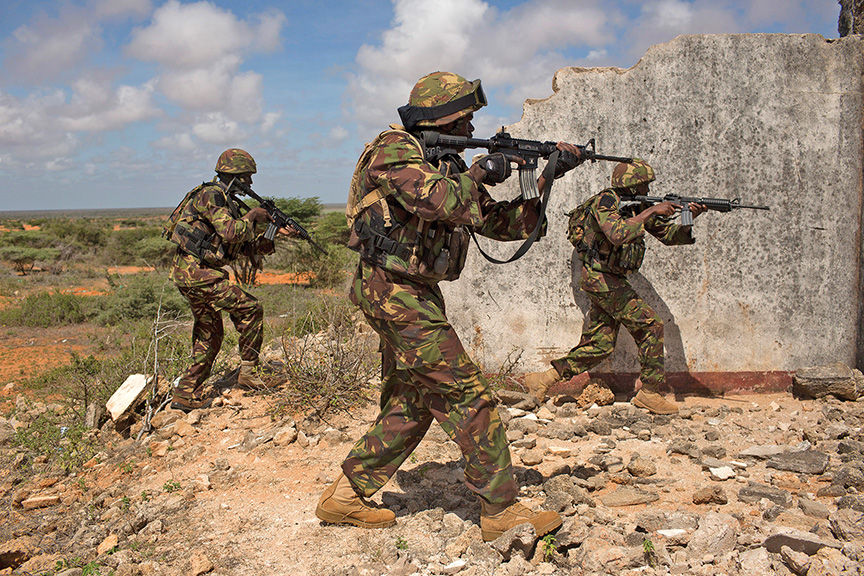
U.S. Africa Command Staff
In many ways, the continent of Africa is more peaceful today than it has been in decades. A 2012 analysis published in the journal African Affairs showed that conflicts on the continent have been decreasing in number, size and brutality since the early 1990s.
But patches of instability remain. The fallout from the Arab Spring has resulted in loose weapons and volatile political environments across North Africa and the Sahel. The terrorist group al-Qaida in the Islamic Maghreb, though weakened after the international intervention in Mali, still lurks in ungoverned areas and moves across porous borders. Extremist groups such as Boko Haram in northern Nigeria and al-Shabaab in Somalia hold sway over sizable territories.
These groups not only threaten the lives of peace-loving Africans, they could derail the continent’s rapidly growing economies. Looking forward, even if interstate conflict and civil wars continue to be rare, terror groups will seek out civilian targets. The mass murder in Nairobi’s Westgate Shopping Mall in September 2013 was a painful reminder of the bloodshed possible at the hands of a few dedicated fanatics.
Nations will need to adopt an all-of-the-above approach to fighting terror. In its Counterterrorism Strategy and Implementation Plan, the Economic Community of West African States outlined a comprehensive approach to the problem that has three main pillars: prevention, pursuit and reconstruction.
Prevention includes gathering intelligence and countering terrorist narratives that lead to radicalization. Security professionals must also train to recognize the calling cards of terror groups before they attack and work to defend likely targets such as critical national infrastructure. Pursuit calls for a multipronged approach, including a strong military that is backed by community policing, border security and banking controls to block terrorist financing. Finally, reconstruction deals with rebuilding a society after a terrorist event. It asks officials to address some of the root causes of terrorism, including religious and ethnic conflict, and unequal access to resources.
Building security capacity to meet these challenges will require partnership, fortitude and communication among all nations in the region. The dynamic nature of the terror threat requires intelligence sharing, resource pooling, and joint training programs to ensure a synchronized and united front. Together, we can pave the way for a prosperous and peaceful future.


Comments are closed.